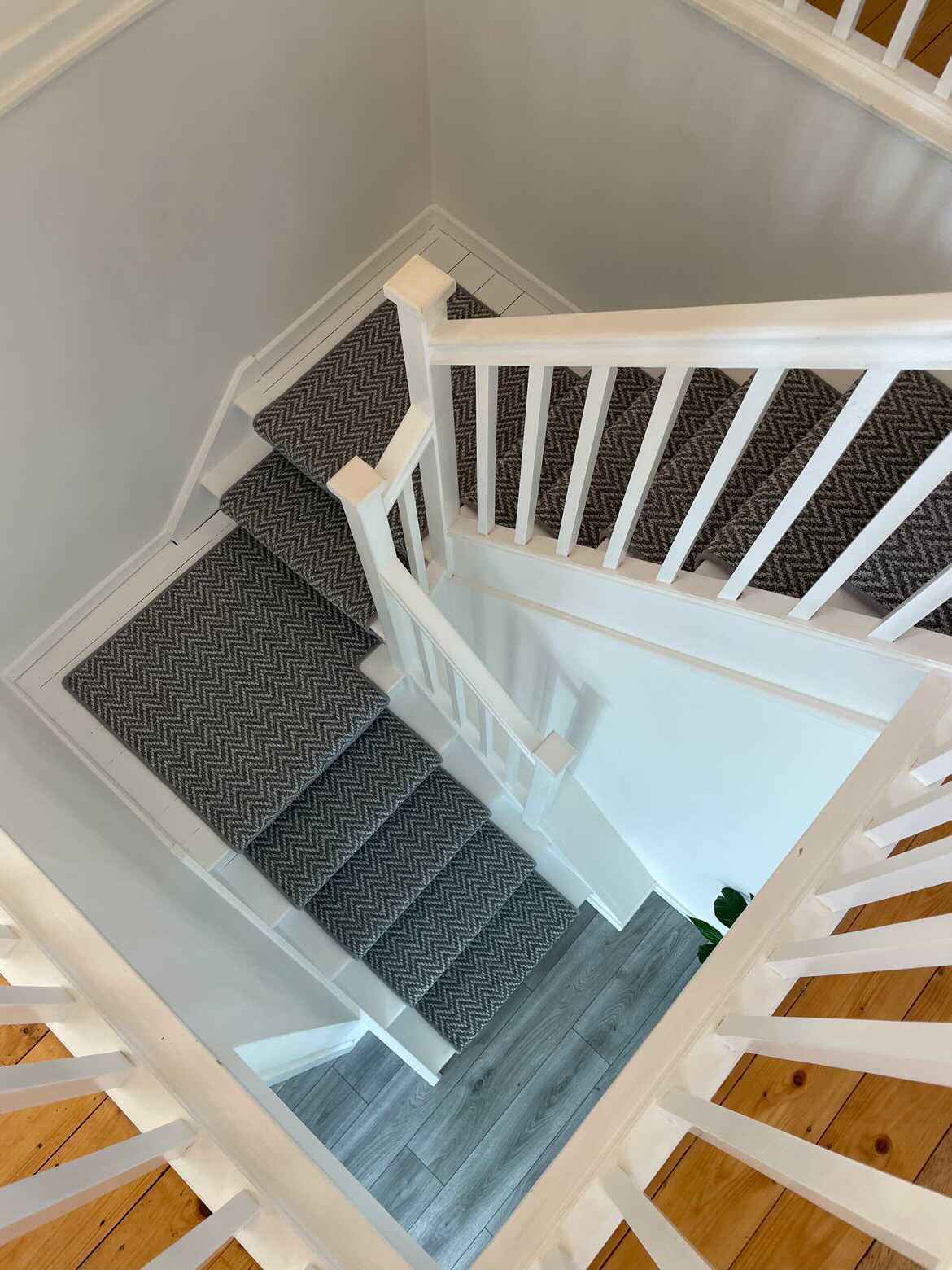
Faux or polypropylene carpet, is a popular choice for residential properties due to its affordability and durability. Lets look at the pros and cons of it below 👇
Pros and cons of faux carpet stair runners
Here are some of the key advantages and disadvantages of faux/polypropylene carpet
Pros
1) Cost-effective - Polypropylene carpet is generally more affordable than other carpet materials, making it a cost-effective option for budget-conscious consumers.
https://stairrunnersdirect.com/stair-runners/herringbone/faux/oxfordnaturehb
2) Stain-resistant - One of the major benefits of polypropylene carpet is its inherent stain resistance. It has a low absorbency rate, which means it repels liquid spills and stains more effectively compared to other carpet materials.
https://stairrunnersdirect.com/stair-runners/herringbone/faux/ice
3) Fade-resistant - Polypropylene fibres have excellent resistance to fading caused by exposure to sunlight. This makes it a suitable choice for areas with abundant natural light or rooms with large windows.
4) Moisture-resistant - Unlike natural-fibre carpets, polypropylene is naturally moisture-resistant. It does not absorb water easily, which helps prevent mold and mildew growth, making it a suitable option for spaces prone to moisture such as basements or bathrooms.
https://stairrunnersdirect.com/stair-runners/patterned-and-striped/patterned/zebra
5) Durability - Polypropylene carpet is known for its durability and ability to withstand heavy foot traffic. It is highly resistant to wear and tear, making it a suitable choice for high-traffic areas in both residential and commercial settings.
https://stairrunnersdirect.com/stair-runners/plain/faux/manaus
Cons
1) Susceptible to crushing - Polypropylene carpet fibres tend to crush and flatten over time, resulting in a loss of texture and aesthetic appeal. Regular vacuuming and supportive furniture pads can help minimise this issue.
2) Prone to oil-based stains - While polypropylene is resistant to most stains, it is more susceptible to oil-based stains compared to some other carpet materials. Prompt and proper cleaning is essential to prevent permanent staining.
3) Heat sensitivity - Polypropylene fibres have a low melting point, which makes them susceptible to damage from high heat sources such as lit cigarettes or burning embers. Extreme caution is required to prevent accidental damage.
4) Static electricity - Polypropylene can generate static electricity, resulting in mild shocks and attracting dust and other small particles. The use of humidifiers or anti-static treatments can help mitigate this problem.
5) Limited colour options: Polypropylene is less versatile in terms of colour varieties compared to natural fibres like wool or nylon. While it offers a wide range of colour options, some intricate or vibrant patterns may be more difficult to achieve.
Overall, polypropylene carpet offers many advantages such as affordability, stain resistance, and durability. However, its susceptibility to crushing, oil-based stains, and static electricity should be considered when making a purchasing decision. Proper maintenance and choosing the right carpet type for specific areas can help maximize the benefits and minimize the drawbacks of polypropylene carpet.








